Professional Historians Australia encourages all members of Professional Historians Associations (PHAs) to undertake continuing professional development (CPD) to maintain and enhance their knowledge and skills, retain a competitive position in the marketplace, and maintain the professional competence required by clients and the national Code of Ethics.
Your professional development is up to you. CPD is self-directed. Members' professional goals vary according to the type of historical work they practice and the media in which they work, however, CPD should be a process of lifelong learning.
Only you can know what your professional needs are for your specific area of work. Your university training (particularly when supplemented by an applied history course) may have given you a good grounding for your work, but you may find you need additional skills like those associated with running a business or working in new fields or with new media.
What should you do?
First, define your professional needs and goals.
What is the nature of your work now? Do you intend to expand or change your fields of work? What are your future objectives for your work? Do you have the skills you need for your current and future work? Write down your answers and shape them into a strategic framework or business plan for your future career. This does not mean everything is then set for life. Obviously you will see new opportunities and change direction from time to time.
Second, identify your strengths and weaknesses.
Are you unsure how to present yourself or your business? Do you need to find out more about working in museums so that you can tender for jobs in that area? Do you need to develop your computer skills? Seek out professional development activities that will help you to build on your skills and knowledge in these areas. If you struggle to find the professional development activities you are looking for, contact your PHA to suggest an event and even volunteer to help with organising it!
What will your PHA do?
The state and territory PHAs aim to support their members’ professional development through services which may include:
general guidance for members;
workshops, events and publications on topics where no appropriate external guidance is available; and
information on relevant professional development opportunities from external providers.
What do you record as CPD?
Ensure that the skills you acquire through CPD are recognised as part of your qualifications by keeping a record of the CPD you undertake. Always include your professional development activities in your CV, together with your qualifications and PHA accreditation.
The types of CPD which you record may relate to history-related and non-history activities:
Employment knowledge, skills and values - work in history or a related field that involves the development of new approaches, applications, values or techniques.
Education and training - formal short courses, part-time courses, external courses or conference programs that consolidate or enhance history knowledge, skills and values.
Development of the profession - enhancement of the profession by serving on a committee, providing administrative or community services, making verbal and written presentations, and running professional and community workshops.
Development of personal knowledge, skills and values - activities in a non-history field contributing to personal development. For example, human relations, communications skills, conflict resolution and cultural awareness skills.
Contact your state or territory PHA for further information and advice.

